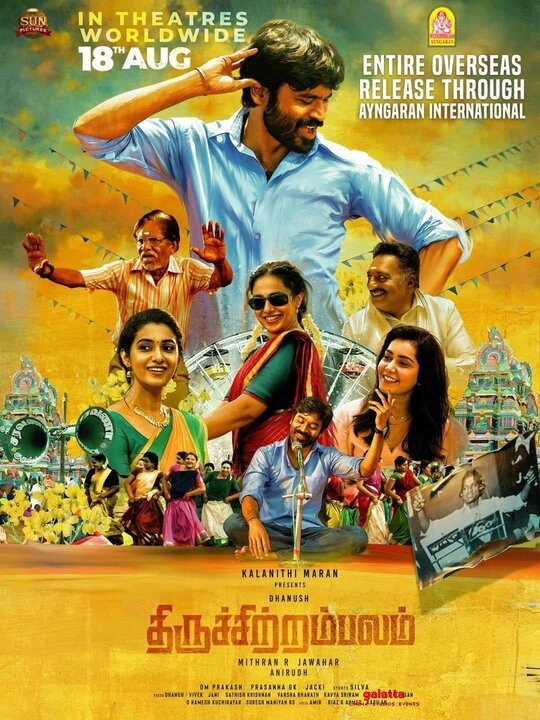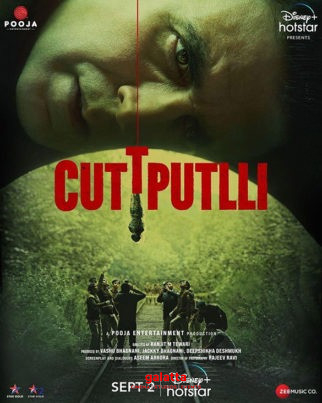Lorni - The Flaneur Movie Review (2022)
Wanphrang Diengdoh's 'Lorni - the Flaneur', with Adil Hussain, now on SonyLIV, is a beautifully moody North-eastern noir

Lorni - The Flaneur Movie Cast & Crew
The dictionary definition of "flaneur" is someone who walks around not doing anything in particular but watching people and society. The Shillong-based Shem (Adil Hussain) is seemingly a private investigator, but he is the flaneur of the title. In an early scene, he is seen gambling at a funeral. As Esther (Dawiat Syiem) passes them, Shem and his friends ask her for tea and snacks. Later, Shem says, in a voiceover we will hear throughout the film, "I went back home penniless that night but I must admit it was the best cup of tea I've ever had in a funeral house." He spends a lot of time at a local eatery, observing three young men. One stormy day, he says, "A terrible storm broke out that afternoon. Great lashings of lightning split the sky."
Shem may observe and speak largely in a literary style of English, but the rest of Wanphrang Diengdoh's is in the Khasi language. On the surface, this dreamily paced narrative plays like noir. There's a series of burglaries, and after ages, Shem gets past the empty pages in his appointment diary and gets something to investigate. In between, we keep hearing those voiceovers. Or lines with a similar flavour. When Shem meets Esther in a bar, she asks, "Aren't you going to ask me what a nice girl like me is doing in a place like this?" Again, it's classic noir atmosphere, classic noir dialogue, and a classic femme fatale from noir. Adil Hussain does something wonderful. Shem is haunted by a tragedy. There's a reason he has not touched a bottle of liquor in seven years. But Adil does not portray Shem as a man to be pitied. Like the rest of Shillong, he is trying to leave the past behind and look ahead – but can you really forget?
Hence the quote that opens the film: "I have no desire to suffer twice, in reality and then in retrospect." It's from Oedipus Rex, the Sophocles play, and Sophocles could have written the line for Shem, who is suffering twice: one, from the reality of what happened in the past, and two, from remembering that reality every single day. The film, similarly, depicts Shillong as a split personality. On the one hand, it is a land of rich myths and folklore (i.e. the past), and the creatures from those myths seem to have survived and the other is not mentioned clearly. Shem calls them "primeval things people talk about even today," like a bloodthirsty animal that dwelt in a cave. This is not a monster movie, but the monsters are in the mind. The reason Shillong suffers is its inability to move on from its past even as the modernised world has forced other aspects of the place to move on.
And that's why the burglaries are so tied to the past, to the Shillong that once was before Nagas and Mizos and Bangladeshis – called "those people", in a racist way – moved in. In one case, what's stolen is a necklace of immense cultural value. It's practically out of a myth, which plays out as a brightly coloured stretch that contrasts with the dull tones of the present day. But what about the intangibles that are being stolen (or disappear) every day: the stories, the sounds, the words of a land? So the thefts become a metaphor. Yes, there are things that are literally being stolen, but there's also the identity of Shillong that is vanishing. Esther seems to echo the filmmaker when she says she has a love-hate relationship with Shillong - and it makes sense that the truth is revealed by someone who has fled Shillong. One way to escape the suffering Sophocles talks about is to assume a new identity, create a new reality. Another way is to revel in the old, or live in the past. But being in the present, that's the painful part. In the guise of a whodunit, Lorni - the Flaneur captures the confusion of transition, a mystery that lies beyond the skills of a private investigator. All he can do is be a flaneur. He can watch but he cannot actually do anything.
About Author

Baradwaj Rangan
National Award-winning film critic Baradwaj Rangan, former deputy editor of The Hindu and senior editor of Film Companion, has carved a niche for himself over the years as a powerful voice in cinema, especially the Tamil film industry, with his reviews of films. While he was pursuing his chemical engineering degree, he was fascinated with the writing and analysis of world cinema by American critics. Baradwaj completed his Master’s degree in Advertising and Public Relations through scholarship. His first review was for the Hindi film Dum, published on January 30, 2003, in the Madras Plus supplement of The Economic Times. He then started critiquing Tamil films in 2014 and did a review on the film Subramaniapuram, while also debuting as a writer in the unreleased rom-com Kadhal 2 Kalyanam. Furthermore, Baradwaj has authored two books - Conversations with Mani Ratnam, 2012, and A Journey Through Indian Cinema, 2014. In 2017, he joined Film Companion South and continued to show his prowess in critiquing for the next five years garnering a wide viewership and a fan following of his own before announcing to be a part of Galatta Media in March 2022.


















